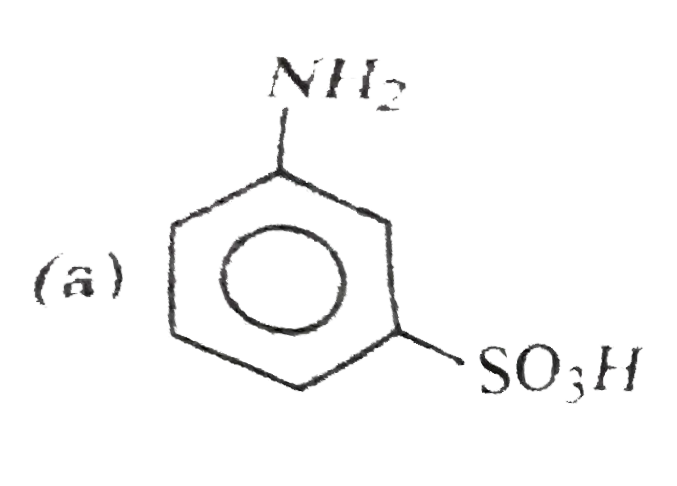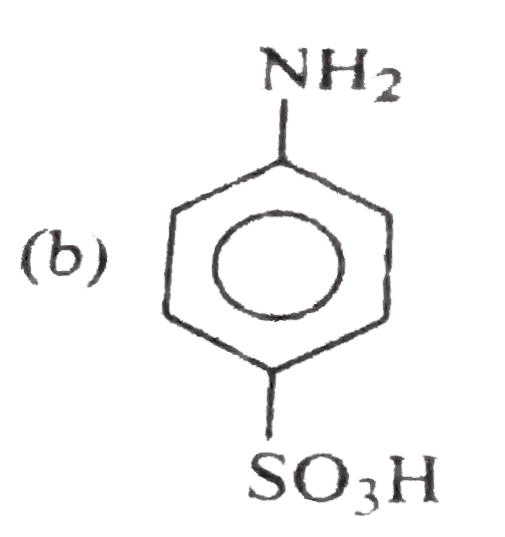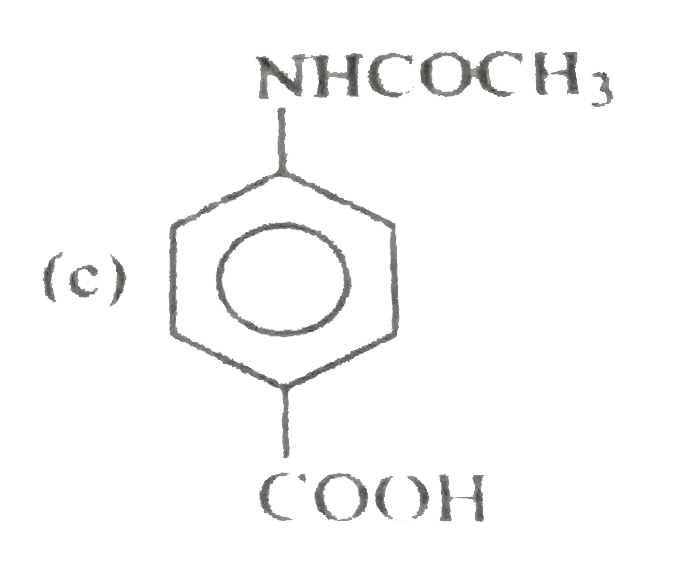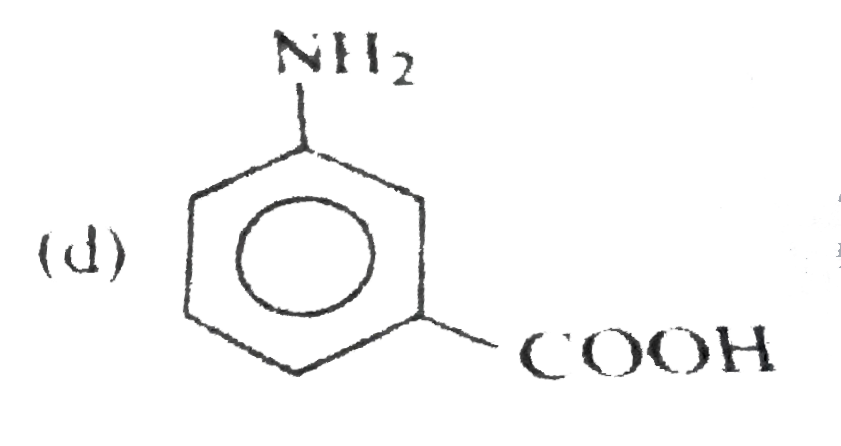A white crystalline solid 'X' give following chemical test :
(i) it liberates CO2 with NaHCO3
(ii) it forms a coloured dye on diazotisation and coupling with β-naphthol
(iii) with Br2 water it forms white precipitate fo 2 ,4 ,6 tribromo aniline .
'X' can be identified as :




The correct Answer is:B
Step by step video, text & image solution for A white crystalline solid 'X' give following chemical test : (i) it liberates CO_(2) with NaHCO_(3) (ii) it forms a coloured dye on diazotisation and coupling with beta-naphthol (iii) with Br_(2) water it forms white precipitate fo 2 ,4 ,6 tribromo aniline . 'X' can be identified as : by Chemistry experts to help you in doubts & scoring excellent marks in Class 11 exams.
Similar Questions
An unknown inorganic compound (X) loses its water of crystallisation. On heating and its aqueous solution gives the following reactions :
(i) It gives a white turbidity with dilute HCl solution.
(ii) It decolourises a solution of iodide in KI.
(iii) It gives a white precipitate with AgNO3 solution which turns black on standing.
Identify compound (X) and give chemical equation for the reactions at step (i), (ii) & (iii).View SolutionHow many of the following are correct.
(i) A white precipitate is obtained when a solution of BaCl2 is treated with Na2SO3
(ii) A white precipitate is obtained when a solution of NaAlO2 is heated with NH4Cl
(iii) A white precipitate is obtained when H2SO4 is passed through a solution of ZnSO4
(iv) A white precipitate is obtained when a solution of ZnSO4 is treated with one of Na2CO3View Solution
Knowledge Check
- Question 1 - Select One
A compound A has a molecules formula C7H7NO. On tratement with Br2andKOH4 , A gives amine B which gives, carbylamine test. B upon diazotisation and coupling with give an azo dye. A can be
AC6H5NO2BC6H5CONH2CC6H5NO2Do,m−or,p−C6H4(NH2)CHO - Question 2 - Select One
A white crystallises salt imparts a violet colour to a Bunsen flame, and with hot concentrated H2SO4, forms a pungent gas. On treatment with an AgNO3 solution, this gas forms a white precipitate readily soluble in NH3. The white crystalline salt may be
ANa2SO4BKClCCaCl2DSrCl2 - Question 3 - Select One
A whiite crystalline salt imparts a violet colour to a Bunsen flame, and with hot concentrated H2SO4, forms a pungent gas. On treatment with an AgNO3 solution, this gas forms a white precipitate readily soluble in NH3. The whiite crystalline salt may be:
ANa2SO4BKClCCaCl2DSrCl2
A light bluish green crystalline compound responds to the following tests
(i) Its aqueous solution gives a brown precipitate or colouration with K2[HgI4]
(ii) Its aqueous solution gives a blue colur with K3[Fe(CN)6].
(iii) Its solution in hydrochloric acid gives white precipitate with BaCl2.
Identify the ions present and suggest the formula of the compound.View SolutionA white crystalline compound (X) swells open heating and gives violet-coloured flame. Its aqueous solution gives the following reactions :
(a) A white precipitate is formed, with BaCl2 in presence of HCl.
(b) When treated with excess of NH4OH, it gives white gelatinous precipitate. the white precipitate dissolves in NaOH and reappears on boiling with concentrated solution of NH4Cl.
( c) It gives yellow precipitate with cobaltinitrite solution. Identify (X) and explain the reaction at steps a,b and c.View SolutionWhen a piece of limestone reacts with dilute HCl, a gas X is produced. When gas X is passed through lime water then a white precipitate Y is formed. On passing excess of gas X, the white precipitate dissolves forming a soluble compound Z.
(a). What are X, Y and Z?
(b). Write equations for the reactions which take place:
(i). When limestone reacts with dilute HCl
(ii). When gas X reacts with lime water to form white precipitate Y
(iii). When excess of gas X dissolves white precipitate Y to form a soluble compound Z.View SolutionWhen H2S gas a passed through an ammonical salt solution X, a slightly white precipitate is formed. The X can be:
View SolutionWhen H2S gas is passed through an ammonical salt solution X, a slightly white precipitate is formed. The X can be :
View Solution

